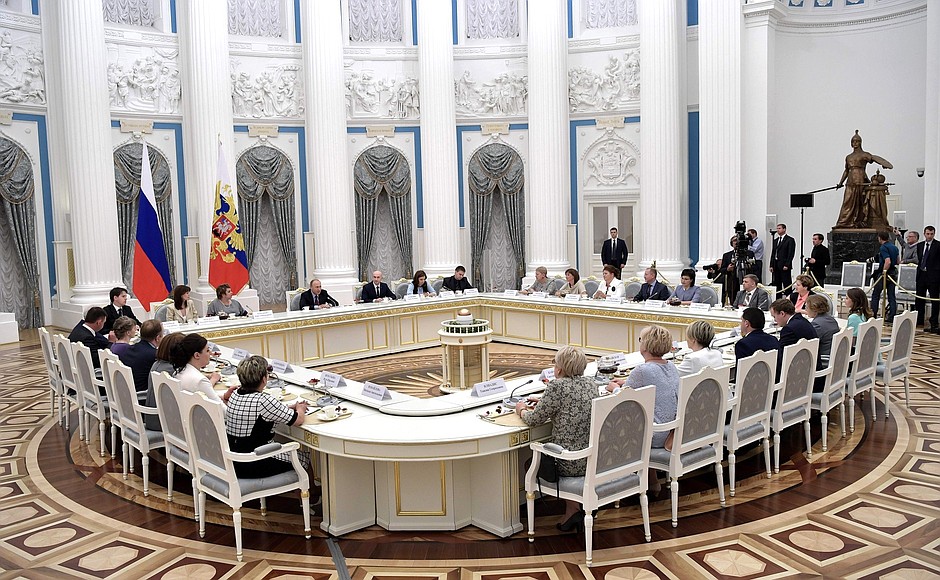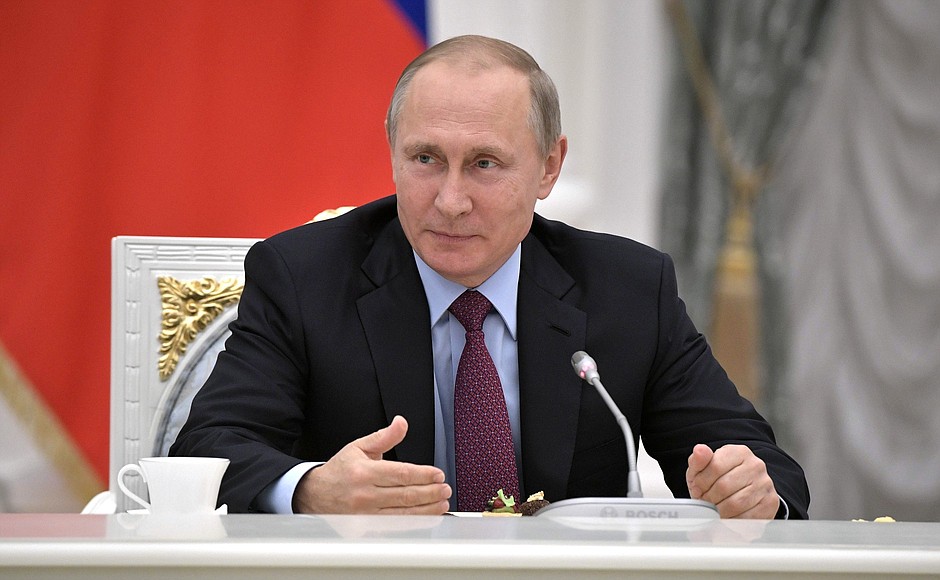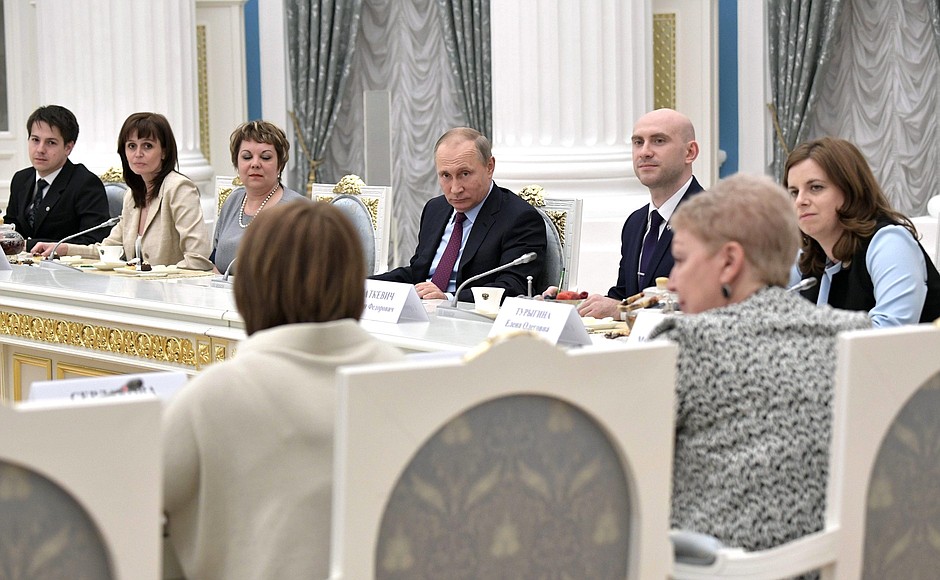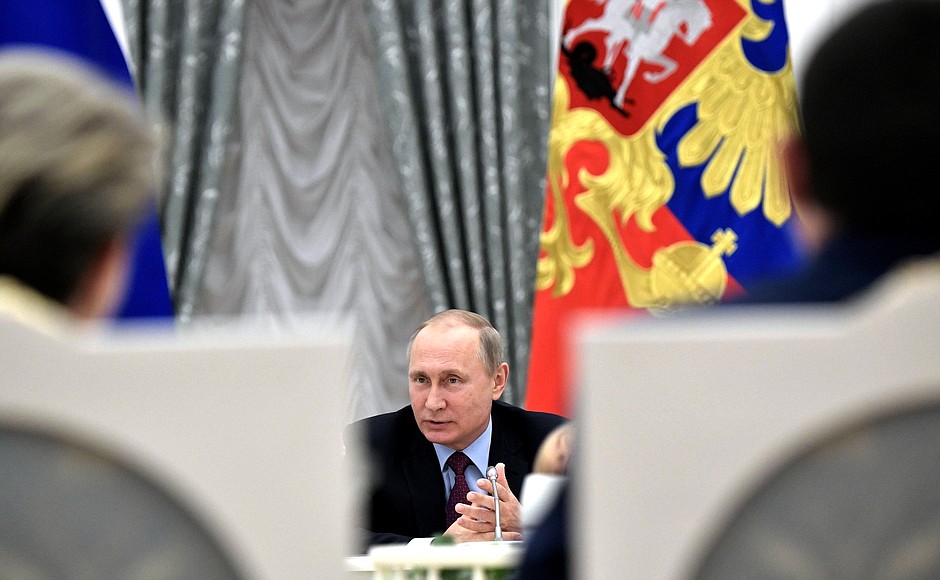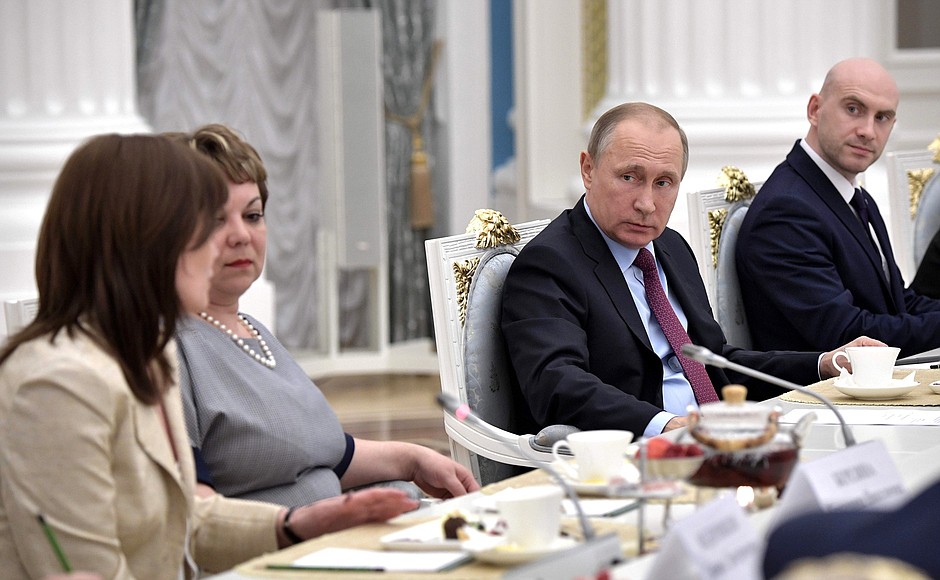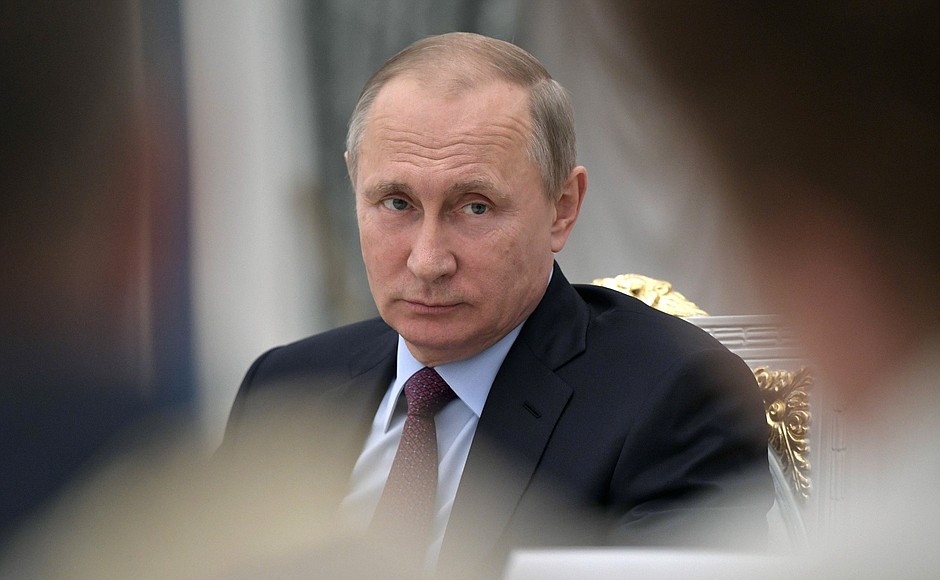At the meeting with the head of state, teachers spoke about the peculiarities of the educational process in secondary schools and about fostering good values in teenagers, and also discussed opportunities of general educational institutions to provide career guidance.
* * *
President of Russia Vladimir Putin: Good afternoon, friends. I meet school teachers more or less regularly – not as often as I would like to but still regularly – during meetings with winners of various contests, on celebratory occasions or in connection with student results.
However, I have never met with instructors or homeroom teachers, especially on the eve of graduation day. Therefore, at the outset of our conversation I would like to extend my very best wishes to you, your students and their families on this holiday.
The holiday is truly unique. Every person, almost every person remembers it as a good and vivid event in our lives and destinies. Of course, they and you had to work hard to make it happen.
Today we are witnessing the development of many new, interesting, and effective methods and new ways of teaching. New technology is being introduced. Everything meets the requirements of today – at any rate we are striving for this. This leaves an imprint on your current activities and results.
I know that you are all from successful schools and you are all accomplished and successful teachers. You have medallists and winners of academic contests but naturally, apart from the strictly professional success achieved by you and your students, you also have to deal with a different component of your work – upbringing.
I suggest discussing all components, your thoughts about the results of this year. Maybe you have suggestions on what else the relevant ministry should be doing and in general, how we should adjust the school system to make it even more effective than it is today.
Needless to say, I hope very much and we all hope that on entering their new, adult life and acquiring new qualities, your students will make the most of the knowledge and skills they received at school. I am referring not simply to knowledge but also – and this is no less important – to the fundamental principles of a person’s attitude to life that you certainly tried to develop in them.
Acquiring knowledge is not easy, especially given the extent of it today, but this task is still secondary compared to the upbringing of young people, which develops in them the right attitude to themselves, their friends, families and the Motherland. These are absolutely fundamental things.
Only if this is achieved it is possible to hope that young people will be well-rounded and content with life while being easy to deal with.
This is what you have been doing not only as experts in different disciplines but also as educators, as homeroom teachers.
We do not have a strict agenda. Mr Fursenko [Presidential Aide], Ms Vasilieva [Minister of Education and Science] and I are all at your disposal.
<…>
